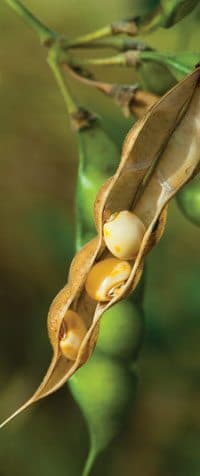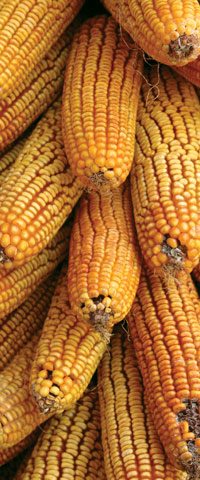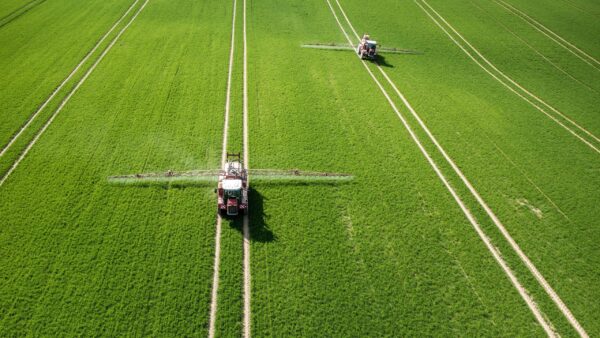
An in-depth overview of the global seed industry. From logistics challenges in Brazil to a new Australian database for pasture seed products.
STATUS BRAZIL
“As the dominant method for transporting major commodities to port, the cost of road freight tends to dictate the freight rates for all modes of transport. For this reason, the new legislation plus the hike in diesel prices have had substantial impact on commodity transport costs,” says Andy Duff, head of Rabobank Brazil’s Food and Agribusiness Research and Advisory Department.
Compounding the challenge, Brazil’s exports of soybeans, corn and potentially sugar are all expected to rise in 2013, based on higher production forecasts. Favourable margins for soybeans and corn have been the key drivers behind expansion of production of both crops in Brazil. Sugar production is expected to rise modestly this year as a result of a recovery in cane yields in the centre/south region after two difficult years.
According to Rabobank, soybean trading companies will have to absorb much of the increase in transport costs this year. However, the expectation of higher costs next season is likely to be passed back to farmgate prices via the prices that trading companies offer for contract soybean purchases from farmers. While this would impact margins for soybean producers (and the same is likely to be the case for corn), it could also ultimately result in lower raw material prices for pig and poultry operations in major grain-producing regions.
— Rabobank
STATUS AUSTRALIA
The long-awaited Australian Seed Federation Pasture Seed Product Database was released at the recent ASF Seed Business Convention held in Adelaide. “For the first time, all commercially-available pasture products are assembled in the one place. The ASF Pasture Seed Product Database lists pasture seed products by species. It also identifies the intellectual property, marketing and varietal status of the various pasture seed products nominated by their Australian marketer,” says Bill Fuller, ASF CEO.
One of the major benefits of the database is that it identifies which pasture products are varieties and which are not. Implicit in the definition of variety is a substantiated capacity to consistently deliver the described genetic characteristics of the pasture seed product. The ASF says anyone can brand a bag of seed and make a claim about its performance, but to have confidence in those claims consumers need to know it is a variety. To qualify as a variety, internationally-agreed scientific procedures must be followed in order to demonstrate that the new variety has the genetic stability and uniformity to deliver the benefits claimed and can do so over successive generations.
In recent years, the number of pasture species and pasture seed products commercially available in Australia has increased significantly. As a result of these trends, livestock producers, their advisors and pasture seed suppliers are seeking information relating not only to an individual pasture seed product’s adaptation and performance, but also to the intellectual property, marketing and varietal status of the various pasture seed products available on the market.
In recognition of the increasing demand to provide this information, the ASF Plant Breeders and Proprietary Marketers Group identified the opportunity to collate and present information in a structured and easily accessible pasture seed product database. The database is dynamic and intended to be updated annually to remove products no longer commercially available and to add new ones.
— Australian Seed Federation
STATUS CHINA
The Post Office of Harbin Inspection and Quarantine Bureau reported in mid-May that it seized 21 boxes of corn seeds sent from an American enterprise, four times in a row, weighing a total of 253 pounds. These seeds sent to two Chinese seed enterprises in Heilongjiang were identified as illegal and destroyed by the post office due to the lack of phytosanitary certification issued by the exporting country and quarantine approval issued by Chinese officials in advance.
After specialized testing, two samples of the illegal corn seeds were respectively found containing a total of six exogenous genes, including two structural genes (EPSPS and NOS) associated with resistance to the herbicides glyphosate and glufosinate. This is the first time that foreign GM corn seeds were uncovered in Heilongjiang.
According to the Regulations on Administration of Agricultural Genetically Modified Organisms Safety, introducers or foreign companies shall apply for GMO safety certificates to the Ministry of Agriculture of China for agricultural GMOs of all safety grades to be introduced from abroad. In addition, China strictly prohibits the import of corn seeds for planting from the United States from areas infected with bacterial wilt disease except for a small quantity of imports for scientific research, which shall be specifically approved by the General Administration of Quality Supervision, Inspection and Quarantine of China.
Such a large amount of GM corn seeds in multiple batches with unclear epidemics drew great attention from the Heilongjiang government. “The illegal behaviour deliberately evading inspection and quarantine supervision is prone to cause risks to food security and do great harm to local ecological environment, agricultural production and public health,” local Heilongjiang officials said.
Government departments represented by the MOA have been trying to increase public awareness of GM technology and products, with the aim of dispelling public fear and misunderstanding. There is speculation that GM grain crops could be released in China sooner or later mainly because of rising food security concerns and the huge commercial value of GM crops.
— CCM













